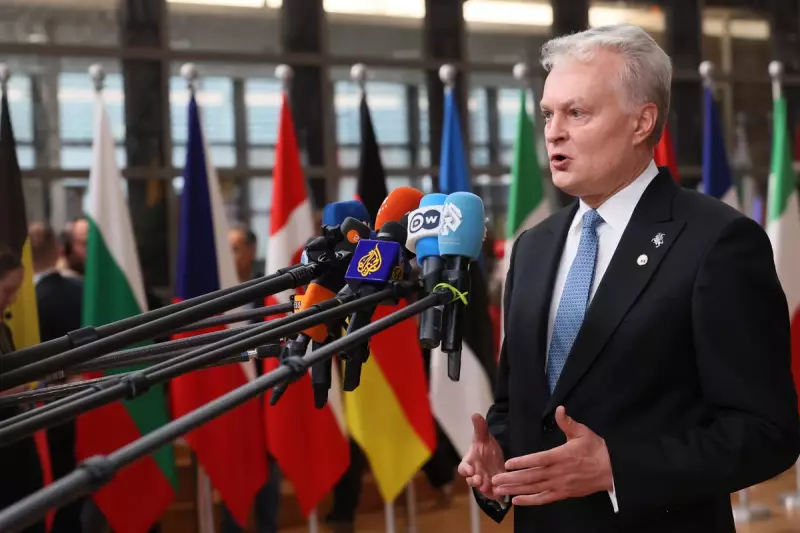
In a sobering assessment that will send shockwaves through European capitals, Lithuania's Defence Minister Laurynas Kasčiūnas has declared that NATO has a critical window of just seven years to prepare for a potential confrontation with Vladimir Putin's Russia.
The stark warning comes as Western intelligence indicates Moscow is rapidly rebuilding its military capabilities despite ongoing operations in Ukraine, with defence experts predicting Russia could pose a significant threat to NATO's eastern flank by the early 2030s.
The Countdown to Confrontation
Speaking exclusively from Vilnius, Minister Kasčiūnas revealed that intelligence assessments point to 2031 as the pivotal year when Russia's military modernisation could reach completion. "The decade of danger is upon us," he stated, his words carrying the weight of a nation that borders both Russia's Kaliningrad exclave and Belarus.
Lithuania, once part of the Soviet Union, has emerged as one of Ukraine's most vocal supporters since Russia's full-scale invasion in 2022. The Baltic state has committed approximately 1.4% of its GDP to military assistance for Kyiv—one of the highest contributions relative to economic size among NATO members.
Baltic Nations on the Front Line
The minister's warning underscores the growing anxiety among frontline NATO states that share borders with Russia or its ally Belarus. Estonia and Latvia have echoed similar concerns, with all three Baltic nations accelerating defence spending and military preparedness.
"We cannot afford complacency," Kasčiūnas emphasised. "The lessons from Ukraine are clear: deterrence requires credible military strength and unwavering political unity."
Recent months have seen multiple NATO members, including Germany and the United Kingdom, announce plans to station additional troops in Lithuania as part of enhanced forward presence measures.
The Race Against Time
Military analysts suggest that Russia's defence industry has demonstrated remarkable resilience despite extensive Western sanctions. Production of artillery shells, missiles, and other essential military hardware has reportedly accelerated, though questions remain about quality and technological sophistication.
NATO officials have acknowledged the need for accelerated preparedness while emphasising the alliance's collective defence commitments under Article 5. The coming years will test whether Western democracies can match the militarisation pace of authoritarian rivals.
As Minister Kasčiūnas concluded: "The clock is ticking, and history will judge our preparedness."





